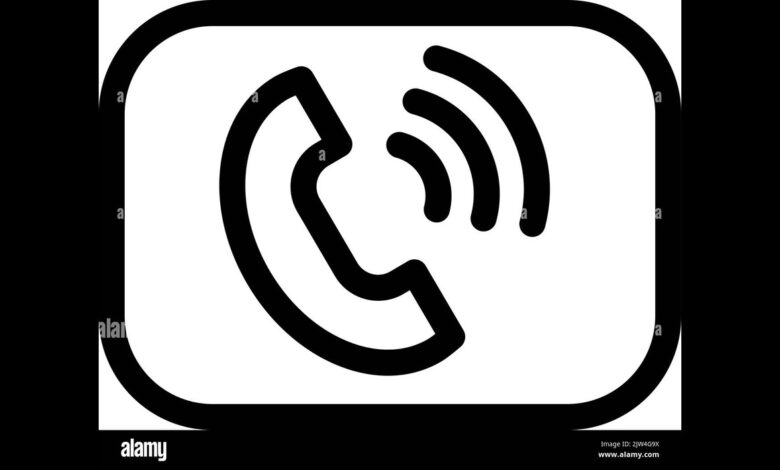
Introduction to the concept of outgoing calls
Have you ever wondered what exactly an outgoing call means? We use our phones daily to make calls, but have you stopped to think about the mechanics behind it? In this digital age where communication is at our fingertips, understanding the concept of outgoing calls is more important than ever. Whether you’re reaching out to a friend, making a business inquiry, or simply checking in with a loved one, knowing how work can empower you to stay connected and informed. So, let’s unravel the mystery together and dive into the fascinating world of outgoing calls!
The different types of outgoing calls
When it comes to outgoing calls, there are several different types that you should be aware of. Each type serves a specific purpose, and understanding them can help you better navigate the world of communication.
One common type of outgoing call is the personal call. You call friends or family to catch up or chat about your day. These calls are usually casual and relaxed, allowing for easy conversation.
Another type of outgoing call is the business call. This involves contacting clients, partners, or colleagues for work-related purposes. These calls often require a more professional tone and may include discussing projects, negotiating deals, or providing updates on work progress.
In addition to personal and business calls, there are also sales calls. These involve reaching out to potential customers to promote products or services. Sales calls can be challenging as they require practical communication skills and persuasive techniques.
There are customer service calls where individuals contact businesses for product or service assistance. Customer service representatives handle these calls to address any issues or concerns that customers may have.
Understanding the different types of outgoing calls allows you to tailor your approach based on the nature of each interaction. Whether it’s catching up with loved ones, sealing a business deal, making sales pitches, or providing customer support – being aware of these distinctions will help ensure successful outcomes in your communications!
Reasons for making outgoing calls
Reasons for making outgoing calls can vary greatly depending on the individual or organization. One common reason is to communicate with friends, family, or colleagues. Whether a quick catch-up call or an important business update, It allow us to stay connected and exchange information in real time.
Another reason for making outgoing calls is seeking customer support or assistance. Instead of waiting for an email response or browsing through FAQs, many prefer speaking directly with a representative over the phone. It provide a personal touch and can often lead to quicker resolutions.
Furthermore, businesses often make outgoing sales calls as part of their marketing strategy. This allows them to reach potential customers directly and pitch their products or services. Outgoing sales calls can be an effective way to generate leads and increase revenue.
Additionally, outgoing calls are essential in emergencies when immediate communication is crucial. Whether it’s reporting a crime, contacting emergency services, or reaching out for help during accidents or medical emergencies – outgoing calls play a vital role in keeping individuals safe.
Some individuals may use services such as helplines to seek advice on mental health issues, legal matters, financial guidance, etc. These dedicated hotlines provide support and guidance from professionals specializing in different areas.
In conclusion (as per instructions), there are numerous reasons why people make outgoing calls – from maintaining relationships to seeking assistance and conducting business activities. Whatever the purpose, understanding the concept of outbound calling helps us appreciate its significance in our daily lives!
Advantages of outgoing calls
Outgoing calls are vital in effective communication and can offer numerous advantages. They allow for immediate interaction with the intended recipient. Unlike emails or text messages that may go unnoticed for hours, an outgoing call ensures real-time connection and instant response.
This provide a more personalized touch to communication. Hearing someone’s voice creates a sense of familiarity and builds stronger relationships between individuals or businesses. It allows for more explicit expression of emotions, which is often crucial in essential conversations such as negotiations or customer service interactions.
Furthermore, outgoing calls are often more efficient than other forms of communication. Instead of exchanging multiple messages back and forth to convey information, a phone call can quickly address any concerns or questions in one conversation.
Additionally, outbound calling enables businesses to reach out proactively to potential customers or clients. This approach allows companies to expand their customer base by actively seeking new opportunities rather than solely relying on inbound inquiries.
Moreover, outgoing calls facilitate better problem-solving capabilities. They enable prompt troubleshooting by addressing issues directly over the phone rather than waiting for written correspondence that could prolong resolution times.
Tracking and analyzing outgoing calls can provide valuable insights into customer preferences and behavior patterns. By monitoring these interactions through call analytics software, businesses can identify trends that help them improve sales strategies and enhance overall customer satisfaction.
In conclusion,
It offer several advantages, such as immediate connectivity, personalized communication, efficiency, proactive outreach opportunities, efficient problem-solving capabilities, and valuable data analysis possibilities. Understanding the meaning behind outgoing calls is essential in harnessing these benefits effectively. By embracing this mode of communication, individuals and businesses alike can elevate their interpersonal connections and achieve tremendous success in various aspects of life

Disadvantages of outgoing calls
While outgoing calls can be a valuable tool for communication, there are also some drawbacks to consider. One of the main disadvantages is cost. Making frequent can quickly rack up charges on your phone bill, especially if you’re making long-distance or international calls.
Another downside is that require an investment of time and effort. You must dial the number, wait for the recipient to answer, and engage in conversation. This can be time-consuming, particularly if you have a busy schedule or must make multiple calls.
Additionally, there is always the possibility of disruptions during an outgoing call. Poor signal strength or technical issues may lead to dropped calls or unclear audio quality. These interruptions can hinder effective communication and cause frustration for both parties involved.
Privacy concerns are another disadvantage associated with outgoing calls. When you make a call, there’s always a chance that someone could overhear your conversation without your knowledge or consent. This lack of control over who might be listening can pose risks in terms of confidentiality.
Relying solely on outgoing calls limits your options for communication channels. In today’s digital age, numerous alternative methods, such as email, instant messaging apps, and video conferencing platforms, offer more flexibility and convenience.
Understanding these disadvantages helps us weigh the pros and cons when deciding whether to use outgoing calls as our primary means of communication. Considering all aspects – costs involved, time commitment required, potential disruptions, and privacy concerns – we can make informed choices about how best to connect with others in various situations.
How to track and manage outgoing calls
Tracking and managing outgoing calls is essential for businesses to monitor their communication activities and ensure efficiency. Several methods are available to help organizations keep track of their outgoing calls.
One effective way to track outgoing calls is by using call-tracking software. This technology allows businesses to gather data on every outbound call, including the call’s date, time, duration, and recipient. It also provides valuable insights into caller behavior and helps identify trends or patterns.
Another method is using customer relationship management (CRM) systems. These platforms store contact information and enable users to log details about each outgoing call. This can include notes on the conversation, follow-up tasks, or any other relevant information that aids in maintaining a comprehensive record.
Integrating voice-over-internet protocol (VoIP) services with CRM systems can enhance call-tracking capabilities. VoIP offers features like call recording and transcription, providing extra insight into outbound conversations.
By effectively tracking and managing outgoing calls, businesses can analyze calling patterns, identify areas for improvement in customer service or sales tactics, and ultimately optimize their communication strategies for better results. So whether through advanced software solutions or integrated systems like VoIP with CRM platforms – staying on top of your outbound calls has always been challenging!
Conclusion: Is it essential to understand the meaning of outgoing calls?
Understanding the meaning of outgoing calls is crucial in today’s digital age. It allows individuals and businesses to communicate, connect with others, and stay connected effectively. For personal or professional reasons, It play a significant role in our daily lives.
We can choose the most suitable option based on our needs and preferences by knowing the different types of outgoing calls, such as mobile phone calls, landline calls, or voice-over IP (VoIP) calls. Outgoing calls enable us to reach out to friends, family members, colleagues, clients, or business partners effortlessly.
The reasons for making outgoing calls can vary widely. From keeping in touch with loved ones who are far away to conducting meaningful business negotiations or simply seeking information from customer service representatives – each call serves a unique purpose and helps us accomplish specific goals.
It offer numerous advantages. They provide real-time communication that fosters better understanding between the parties involved. With voice communication being an integral part of human interaction since time immemorial, hearing someone’s tone of voice adds depth and clarity to conversations, which text-based forms like emails or messages may lack.
Moreover, It allow for immediate feedback and faster decision-making processes compared to other modes of communication. They also help build stronger relationships by adding a personal touch and facilitating practical problem-solving discussions when face-to-face meetings are impossible.
However, just like any form of communication medium has its drawbacks, outgoing calls are no exception. One major disadvantage is that they require both parties to be available simultaneously, which can sometimes be challenging due to conflicting schedules or time zone differences.
Another potential downside is the cost of making long-distance or international outgoing calls. In some cases where traditional telephone lines are used for overseas calling purposes without particular plans offered by service providers – expenses can quickly add up.
One can employ several strategies to track and manage outgoing call activities effectively while minimizing costs if necessary. Call tracking software allows individuals and businesses to monitor call volumes and duration.







